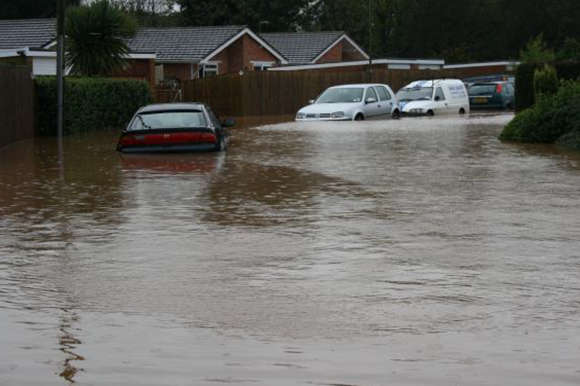
It's been the wettest 18 months ever
People in Devon are being urged to prepare for floods after wettest 18 months on record
It comes as the Environment Agency launches a Flood Action Week to ensure everyone knows their flood risk
The Met Office is warning of another wet autumn and winter.
Now residents are asked to sign up to flood warning, make sure they have a flood plan and take steps to prepare.
The action week coincides with the first anniversary of Storm Babet, which brought significant flooding across the country.
Actions to take to reduce the dangers are:
- Check your long-term flood risk. You can use this free service to find out the long-term flood risk for an area in England, the possible causes of flooding, and how to manage flood risk.
- Sign up for flood warnings
- Take steps to protect yourself from future flooding – including storing important documents in a secure, waterproof location, taking rugs and small furniture upstairs, checking how to turn off your electricity and water, preparing a flood kit.
- Explore longer-term Property Flood Resilience measures (PFR) to protect homes and businesses.
Ben Johnstone, Environment Agency Flood and Coastal Risk Manager for Devon, Cornwall and Isles of Scilly, said: “Our local teams train all year round to prepare for and respond to flooding. We are out on the ground, maintaining assets and engaging with communities to boost resilience.
“However, we can never eliminate flood risk and the impacts of flooding entirely. That's why it’s crucial for individuals to take steps to prepare themselves – this Flood Action Week and beyond. Everyone has a part to play.
“With more heavy rainfall and stormy seas expected this winter, it’s vital you follow the key actions to better protect yourself, your loved ones and your properties from flooding.”
During a flood, it is especially important that drivers take particular care on roads, stay away from swollen rivers and do not drive through flood water – just 30cm of flowing water is enough to move your car.
The impacts of flooding to mental health can be equally as harmful as the physical damage and disruption. People whose homes have been damaged by extreme weather are more likely to have poor mental health than the rest of the population.
 Students connect with elderly residents to combat loneliness
Students connect with elderly residents to combat loneliness
 East Devon theatre needs your help
East Devon theatre needs your help
 Devon police dog honoured
Devon police dog honoured
 Work begins on project to rebuild fire-hit Exeter landmark
Work begins on project to rebuild fire-hit Exeter landmark
 Plymouth community group scoops national award
Plymouth community group scoops national award
